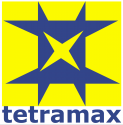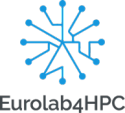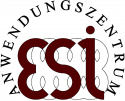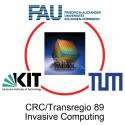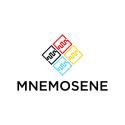10.2 Autonomous Systems Design Initiative: Uncertainty Handling in Safe Autonomous Systems (UHSAS)
Date: Thursday 12 March 2020
Time: 11:00 - 12:30
Location / Room: Chamrousse
Chair:
Philipp Mundhenk, Autonomous Intelligent Driving GmbH, DE
Co-Chair:
Ahmad Adee, Bosch Corporate Research, DE
| Time | Label | Presentation Title Authors |
|---|---|---|
| 11:00 | 10.2.1 | MAKING THE RELATIONSHIP BETWEEN UNCERTAINTY ESTIMATION AND SAFETY LESS UNCERTAIN Speaker: Peter Schlicht, Volkswagen, DE Authors: Peter Schlicht1, Vincent Aravantinos2 and Fabian Hüger1 1Volkswagen, DE; 2AID, DE Download Paper (PDF; Only available from the DATE venue WiFi) |
| 11:30 | 10.2.2 | SYSTEM THEORETIC VIEW ON UNCERTAINTIES Speaker: Roman Gansch, Robert Bosch GmbH, DE Authors: Roman Gansch and Ahmad Adee, Robert Bosch GmbH, DE Abstract The complexity of the operating environment and required technologies for highly automated driving is unprecedented. A different type of threat to safe operation besides the fault-error-failure model by Laprie et al. arises in the form of performance limitations. We propose a system theoretic approach to handle these and derive a taxonomy based on uncertainty, i.e. lack of knowledge, as a root cause. Uncertainty is a threat to the dependability of a system, as it limits our ability to assess its dependability properties. We distinguish uncertainties by aleatory (inherent to probabilistic models), epistemic (lack of model parameter knowledge) and ontological (incompleteness of models) in order to determine strategies and methods to cope with them. Analogous to the taxonomy of Laprie et al. we cluster methods into uncertainty prevention (use of elements with well-known behavior, avoiding architectures prone to emergent behavior, restriction of operational design domain, etc.), uncertainty removal (during design time by design of experiment, etc. and after release by field observation, continuous updates, etc.), uncertainty tolerance (use of redundant architectures with diverse uncertainties, uncertainty aware deep learning, etc.) and uncertainty forecasting (estimation of residual uncertainty, etc.). Download Paper (PDF; Only available from the DATE venue WiFi) |
| 12:00 | 10.2.3 | DETECTION OF FALSE NEGATIVE AND FALSE POSITIVE SAMPLES IN SEMANTIC SEGMENTATION Speaker: Matthias Rottmann, School of Mathematics & Science and ICMD, DE Authors: Hanno Gottschalk1, Matthias Rottmann1, Kira Maag1, Robin Chan1, Fabian Hüger2 and Peter Schlicht2 1School of Mathematics & Science and ICMD, DE; 2Volkswagen, DE Download Paper (PDF; Only available from the DATE venue WiFi) |
| 12:30 | End of session | |





